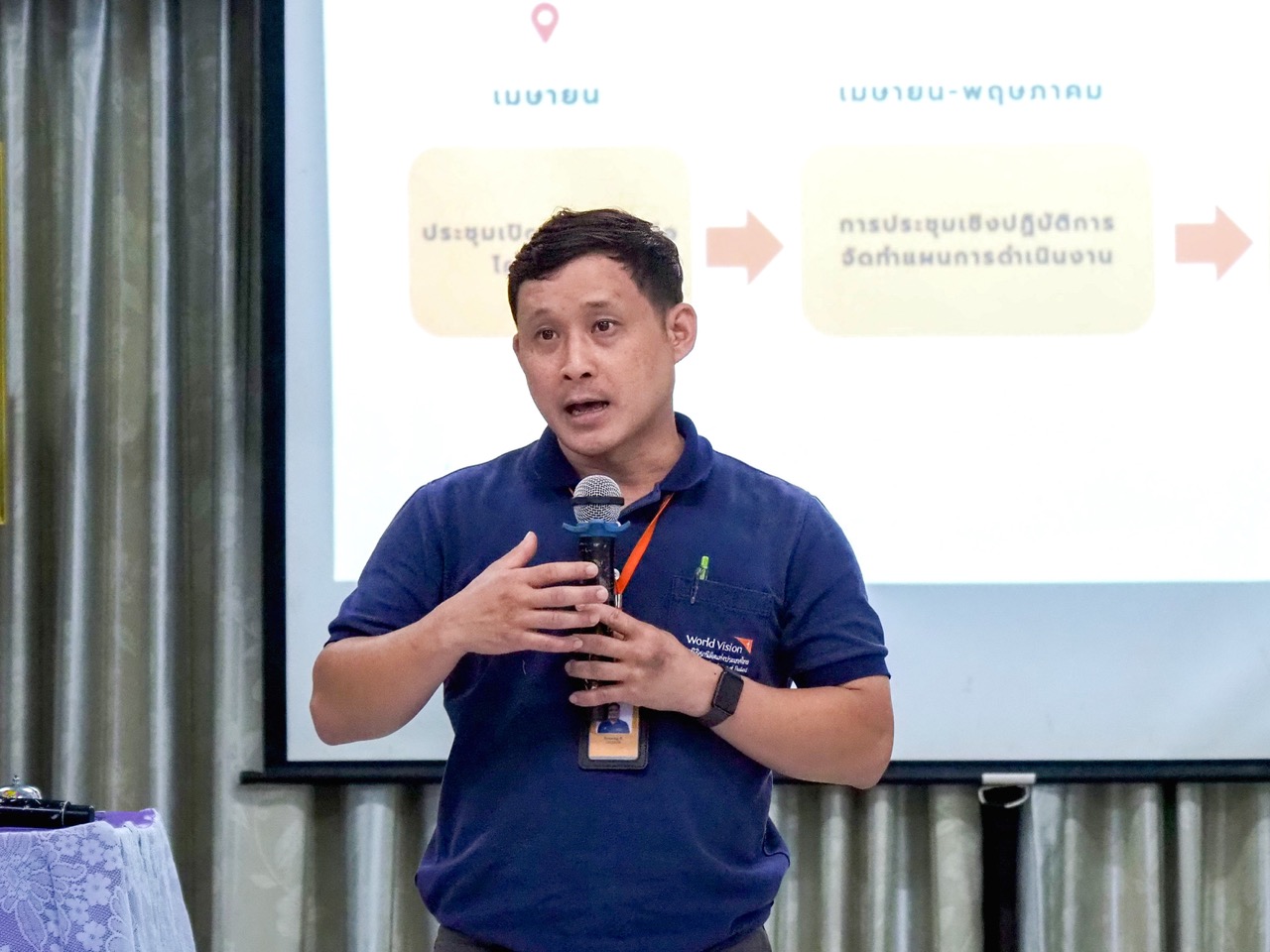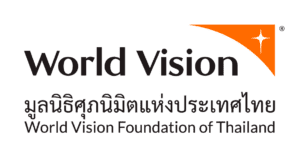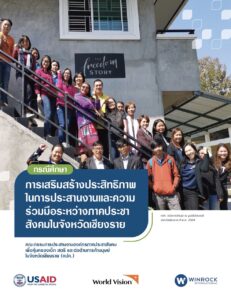
A Ministry for the Most Vulnerable Children: The Role of World Vision Thailand in Child Development in Remote Areas
My name is Prasong Sriphithakdamrong, or as my colleagues call me, “Nice.” My journey with World Vision Foundation of Thailand began with something small, a Bible verse that says, “It is more blessed to give than to receive” (Acts 20:35). That message struck a deep chord in me from the moment I saw it and has since become a guiding principle and driving force in both my life and my work for others.
I grew up in a remote rural province under the patronage of His Majesty King Rama IX through a welfare-based education system. That experience helped me understand the value of receiving, which later inspired my determination to give back to society.
From that beginning, I now find myself working in development work along the border areas of three districts in Tak Province, serving as the Program Manager (PM) of Tak Province under the operations of World Vision Thailand.
Inspired by Giving: The Beginning of a Ministry for Well-being
Before I knew about World Vision Thailand, I had never heard of the organisation or its ministry. One day, while I was still a student, I saw a notebook in a restaurant with a Bible verse about giving. That notebook sparked something profound in my heart.
Not long after, an opportunity came when a friend recommended I apply to work with World Vision Thailand. Having received government support from Grade 7 through Grade 12, I deeply understood the meaning of receiving, which became a powerful motivation to dedicate myself to giving back.
I began my work with World Vision Thailand in 2006 as a Community Development Facilitator in Lampang Province. I later moved to Mae Sariang District in Mae Hong Son Province, and then to Tha Song Yang, Mae Ramat, and Umphang Districts in Tak Province. Altogether, I have worked with World Vision Thailand for over 19 years.
Throughout my career, I have often been asked, “Why do you still choose to do this work?” My answer is simple: marginalised children and communities still need help. For World Vision Thailand, these children and families are never forgotten, because we believe that human rights and dignity are not determined by where someone lives, but by their humanity.
Another key motivation is the smiles of the people in the communities, along with their small tokens of kindness—chillies, vegetables, or heartfelt thanks. These are powerful sources of encouragement that remind me that “Every effort is not in vain.”
Moreover, the organisational culture of World Vision Thailand, rooted in the teachings of Jesus Christ and reflected in our Core Values, which state that We are Christian; We value people; We are committed to the poor; We are good stewards; and We are responsive. These have strengthened my resolve. I grew up with the values of love, compassion, and service to others, so I feel a deep alignment with World Vision Thailand’s ministry.
Challenges in Remote Areas: A Context That Requires Understanding and Respect
Working in remote areas is not just about navigating winding roads or difficult travel. It means facing complex, multi-dimensional contexts that require deep understanding and genuine respect for differences.
In some areas, communication remains a challenge due to the lack of basic phone service. Roads may be cut off during the rainy season due to flash floods, making access and aid delivery slow and difficult.
Most people in these border areas are ethnic minorities with their own languages, cultures, and ways of life. While they possess deep local wisdom, some areas, such as nutrition and hygiene, still need development. These require time, mutual learning, and shared understanding. Moreover, legal limitations regarding land use and residence in protected forest areas also remain major obstacles. While communities do not reject development, accepting new approaches must be done carefully, with respect for their traditional knowledge and way of life.
All of these reflect that remote areas are not just hard to reach but landscapes of diversity that require integrated, empathetic, and deeply attentive work. Development here cannot come from intervening to change them, but rather walking alongside them to build stable and sustainable growth together.
The Role of Program Manager: Faith in the Work and Leading by Example
As Program Manager, my key responsibilities are to guide the team based on policy, strengthen the team, and be present in the field as a role model. I believe that if everyone in the team is happy and has faith in their work, success will follow.
Child Sponsorship is not just about charity but a gateway to engaging with communities, developing ideas, building skills, and fostering collaboration at all levels. In Tak Province, where 98% of vulnerable children live in poverty, this structural work remains critically important.
In times of fatigue or discouragement, I find strength in the words of Mother Teresa: “Do good anyway. It is between you and God. It was never between you and them anyway.” These words give me the courage to keep moving forward.
The words of a villager who once said, “Only World Vision Thailand comes to help us,” remain etched in my memory. So too does the transformation of a sponsored child’s family that once received a cow through a livelihood project. Today, they have expanded their herd, earned a stable income, and sent their child to university.
Simple gifts like vegetables, fruit, or a handmade bag from villagers are symbols of trust, love, and genuine connection. These relationships are not built on roles or duties but on sincerity and being there through all circumstances. Even if I no longer hold this position one day, those relationships will remain — because they are bonds of the heart, not just of roles and responsibilities.
Future Goals: Continuing the Ministry with Heart and Sustainability
I am committed to continuing this ministry by focusing on strengthening the team, both in essential work skills and in the spirit of service, to create deep-rooted change in the lives of children, families, and communities, beyond just numerical success.
I also hope society will recognise the role and value of the work World Vision Thailand does, so that help can reach those still left in the shadows.
True development does not mean staying with the community forever. It means preparing them to stand with dignity and move forward on their own.
From the notebook with that Bible verse to development work in border areas, this journey may be long and full of challenges, but every step is meaningful because our goal is to reach the most vulnerable children.
As long as there is one child still waiting for hope, our journey is not over — because sustainable help is not about creating dependency, but empowering people to walk forward on their own.



